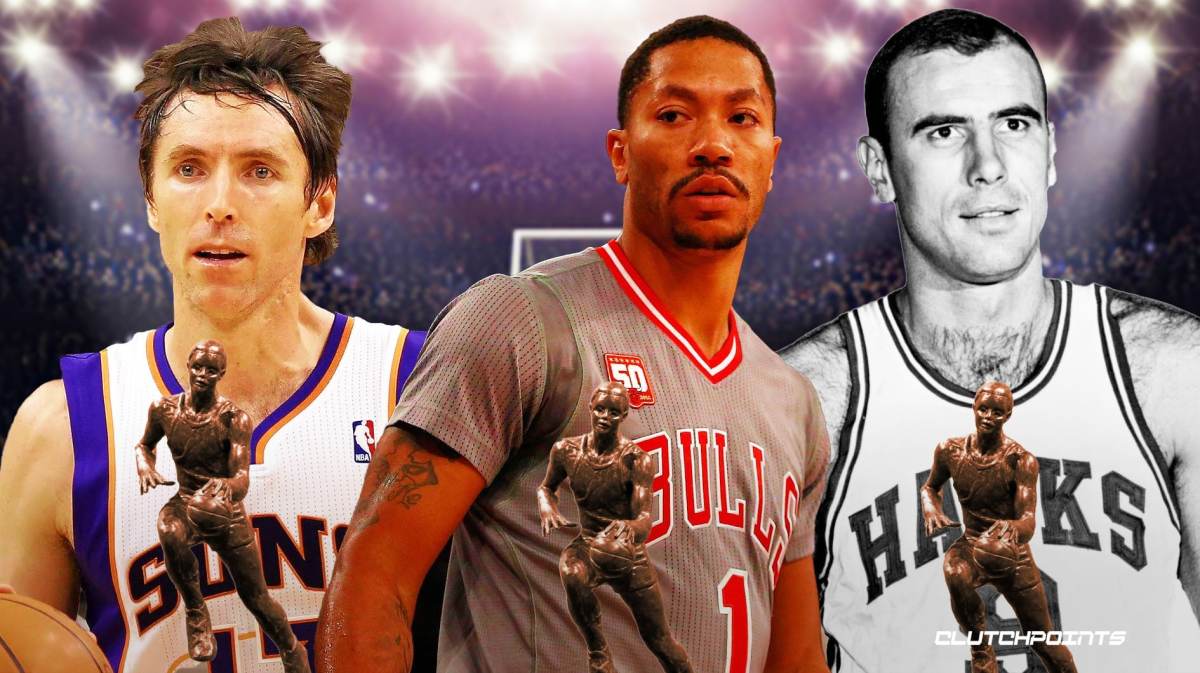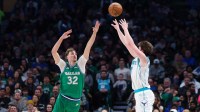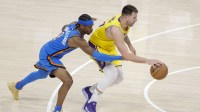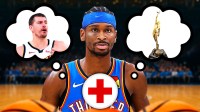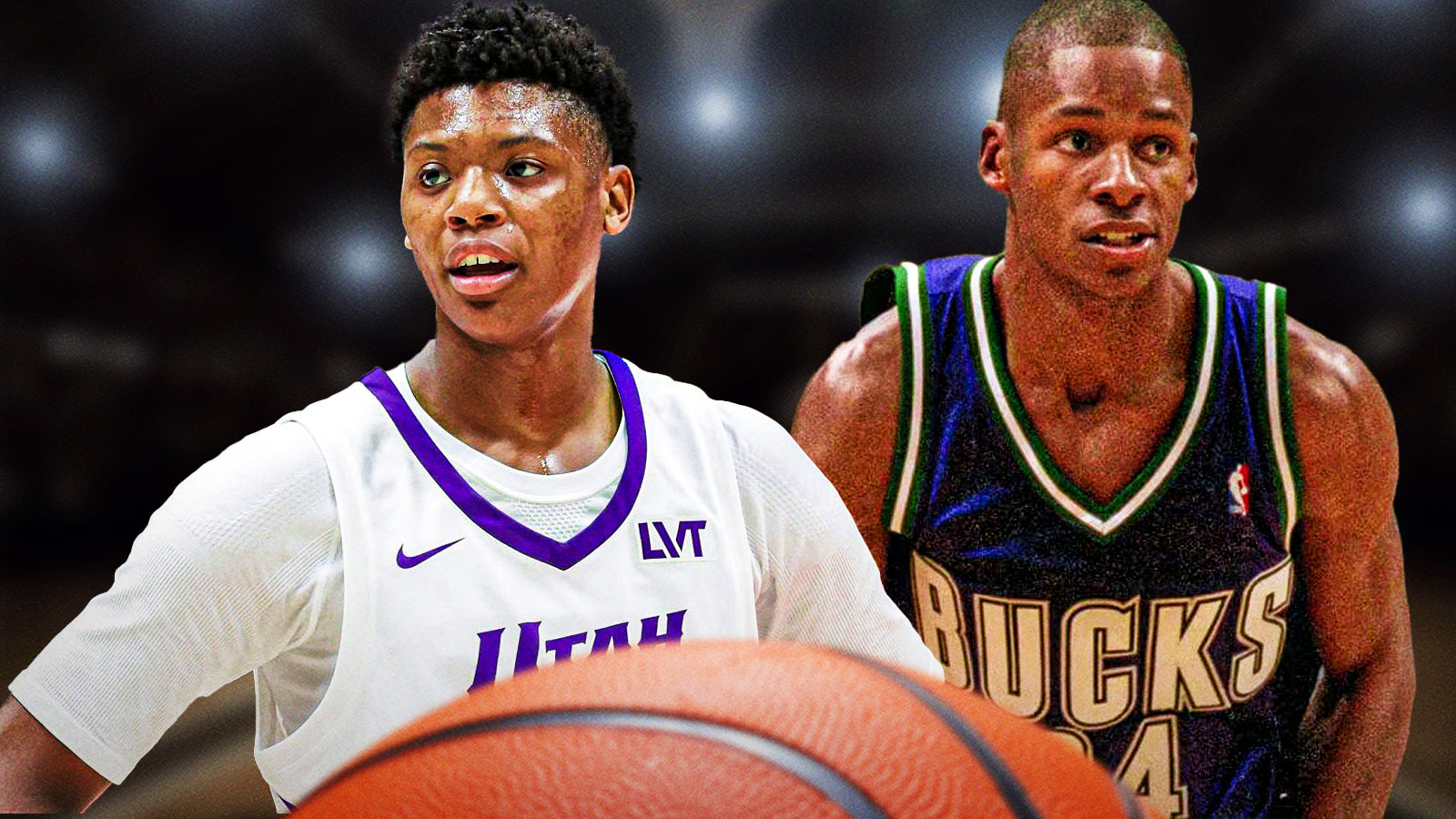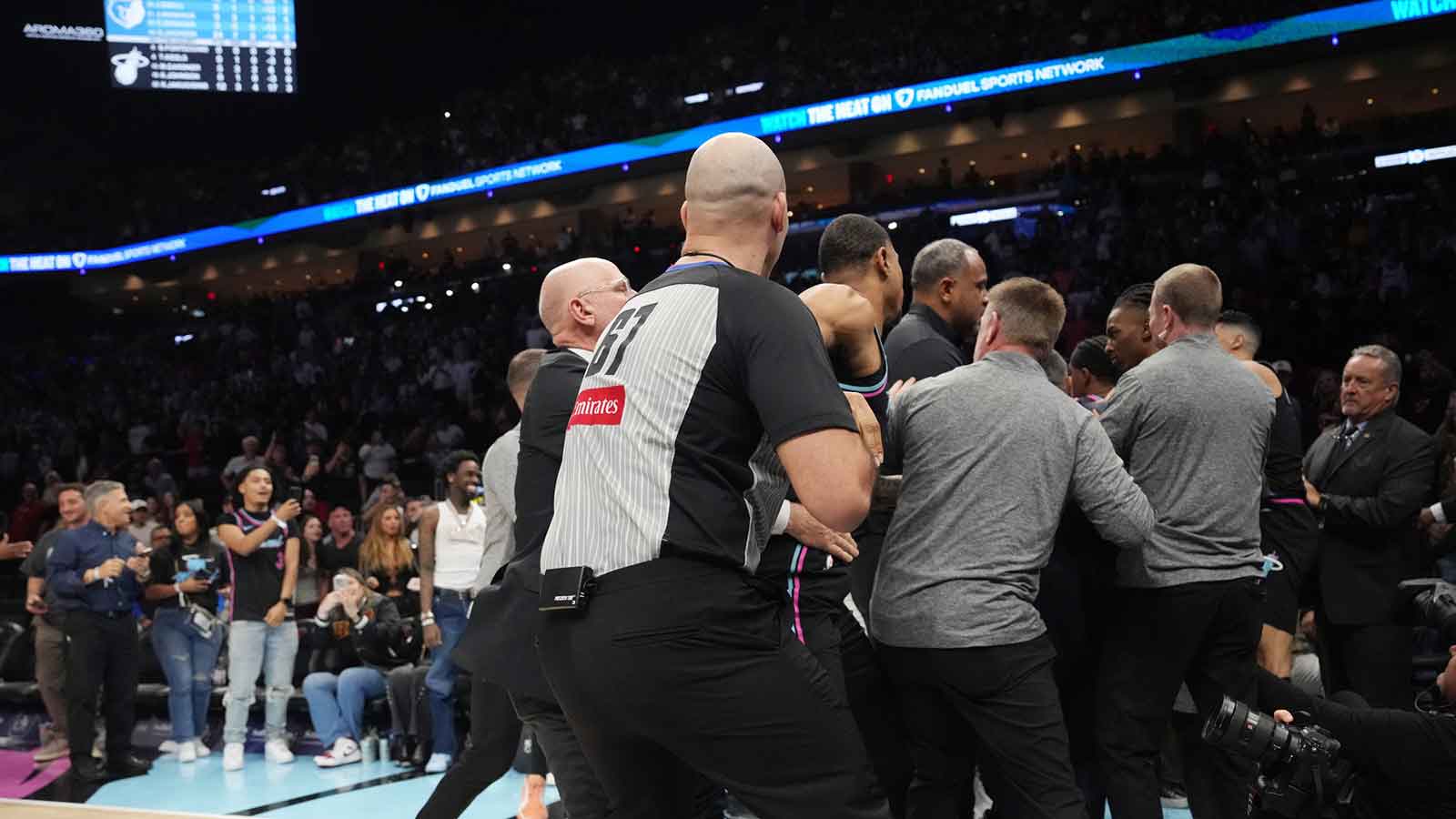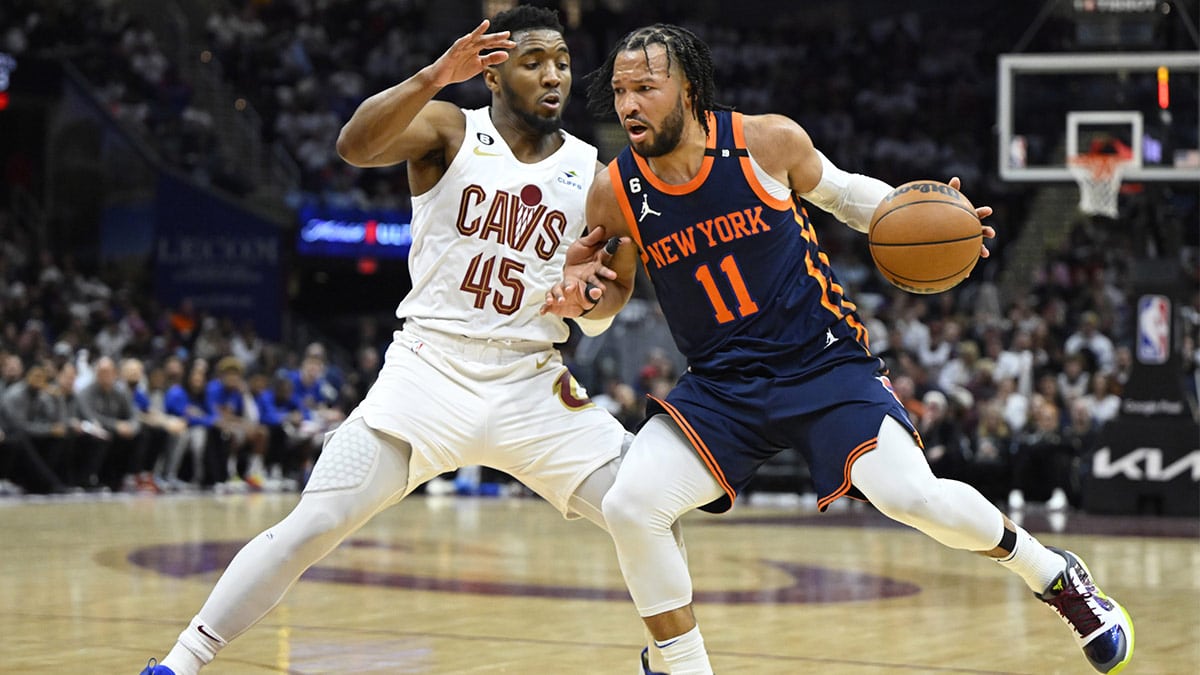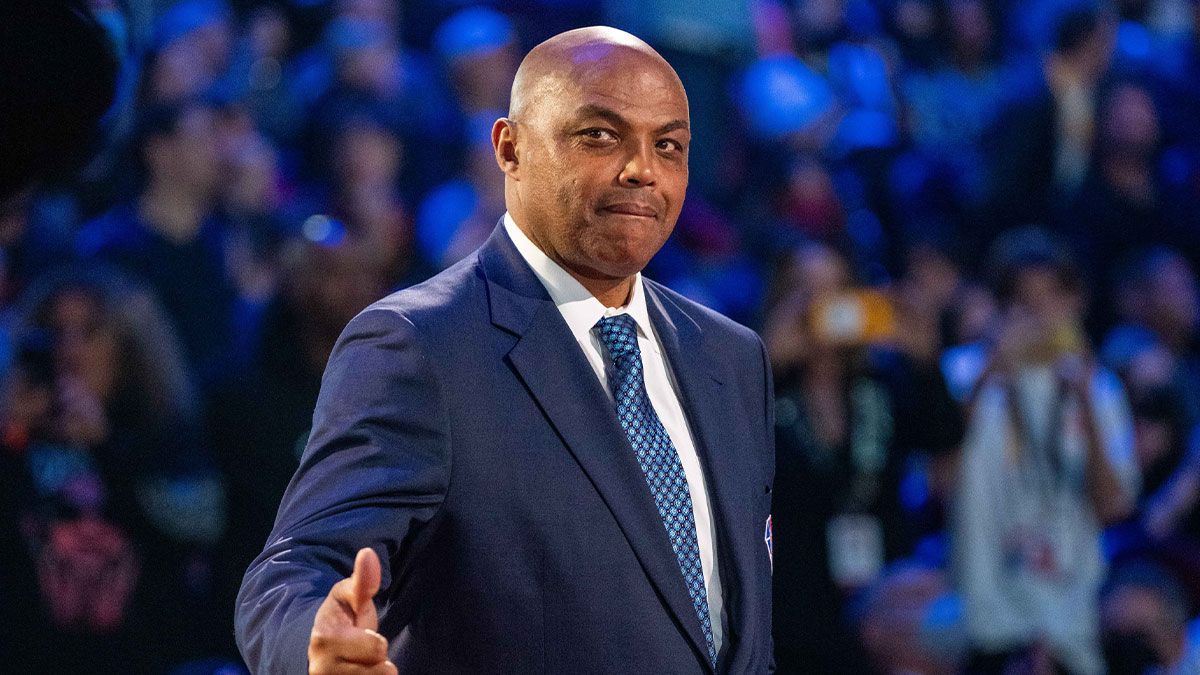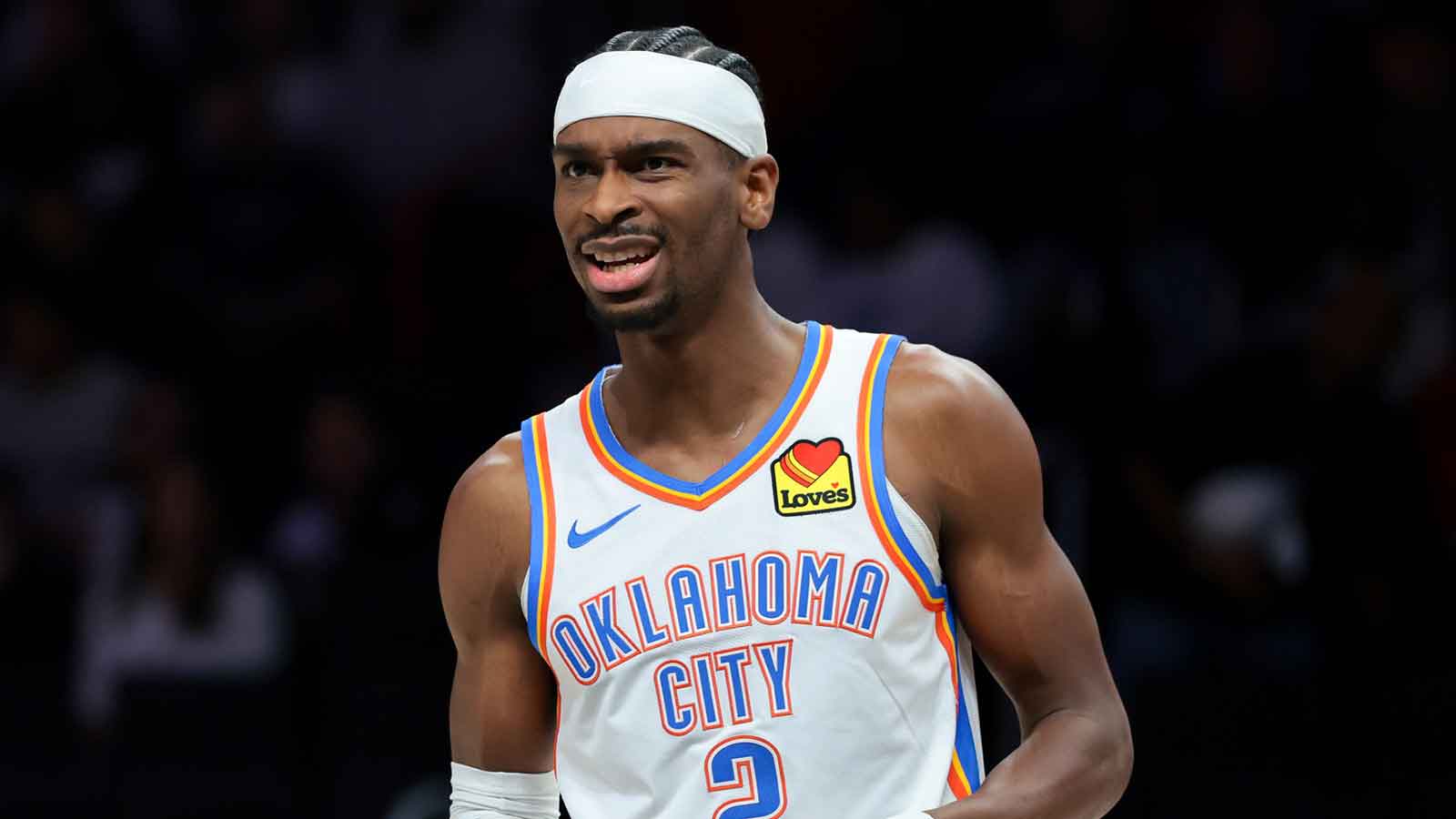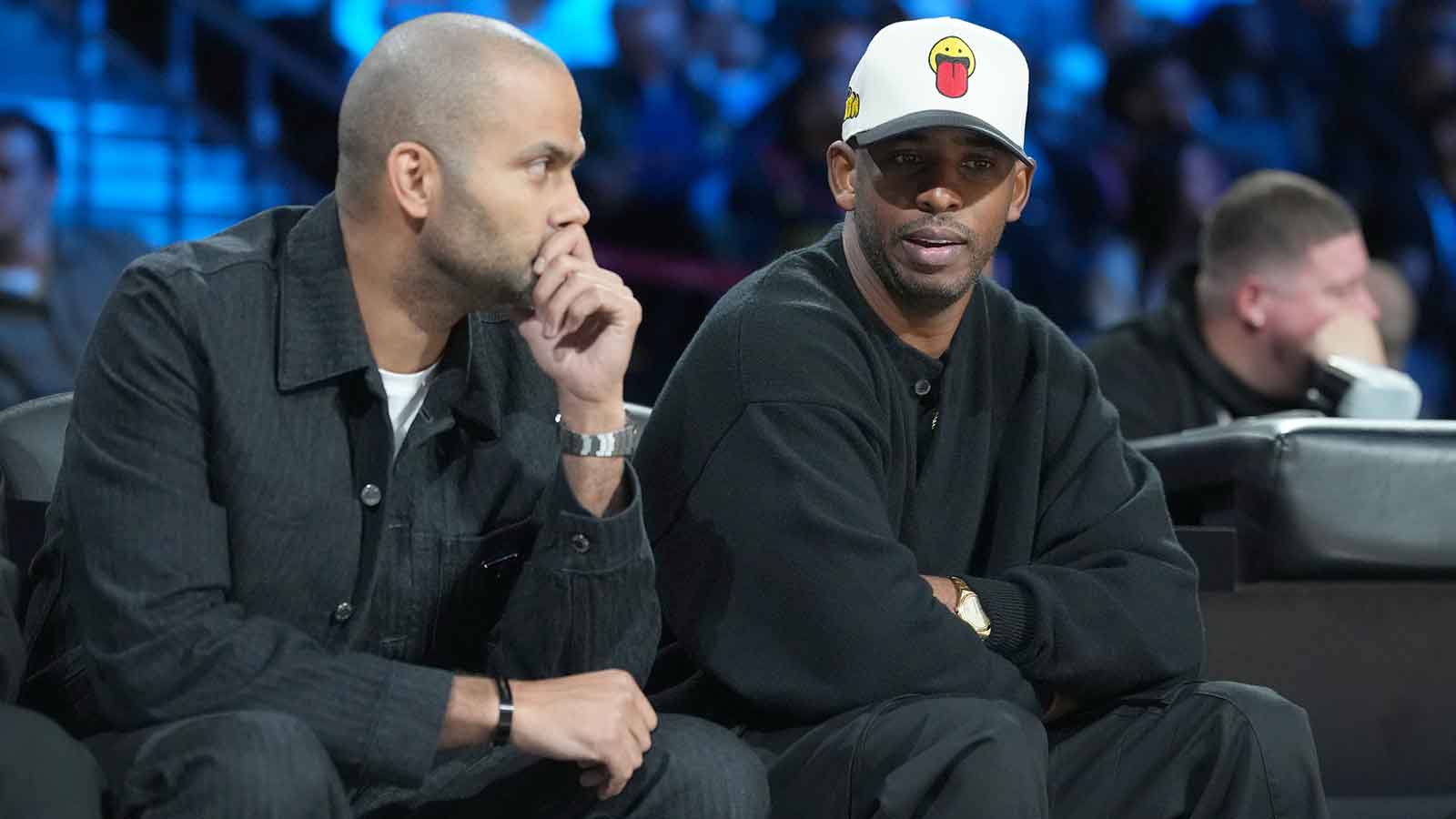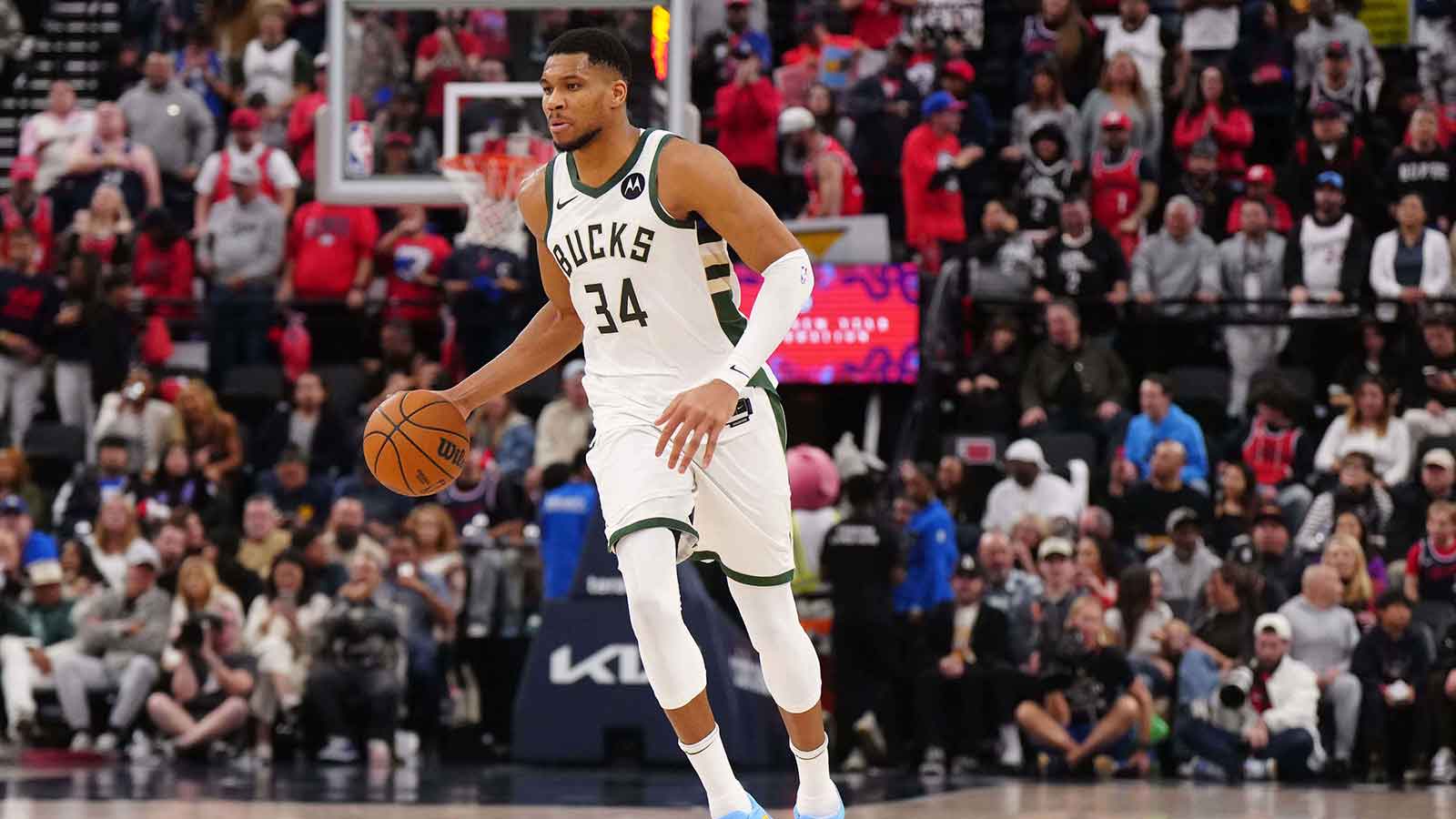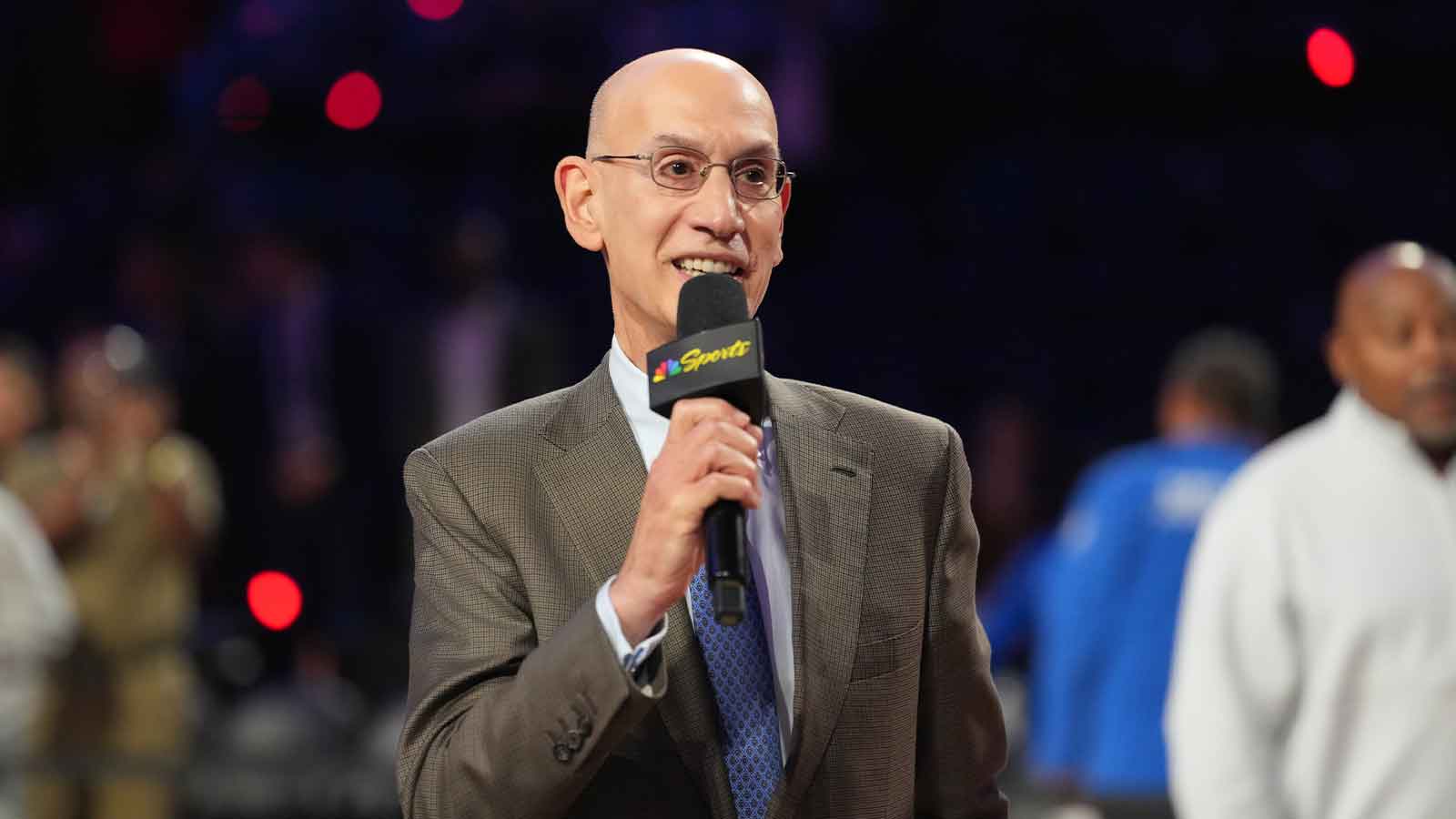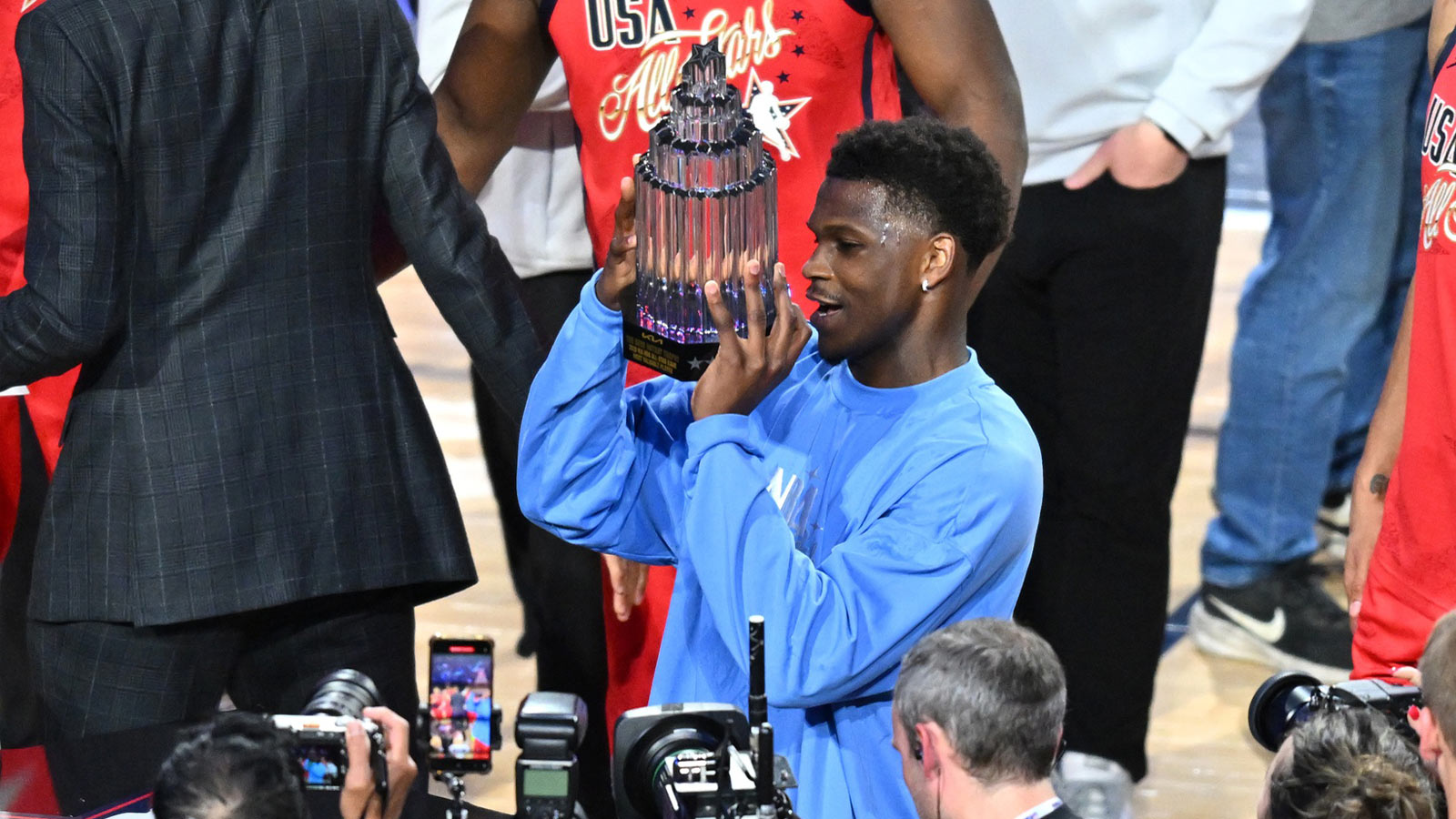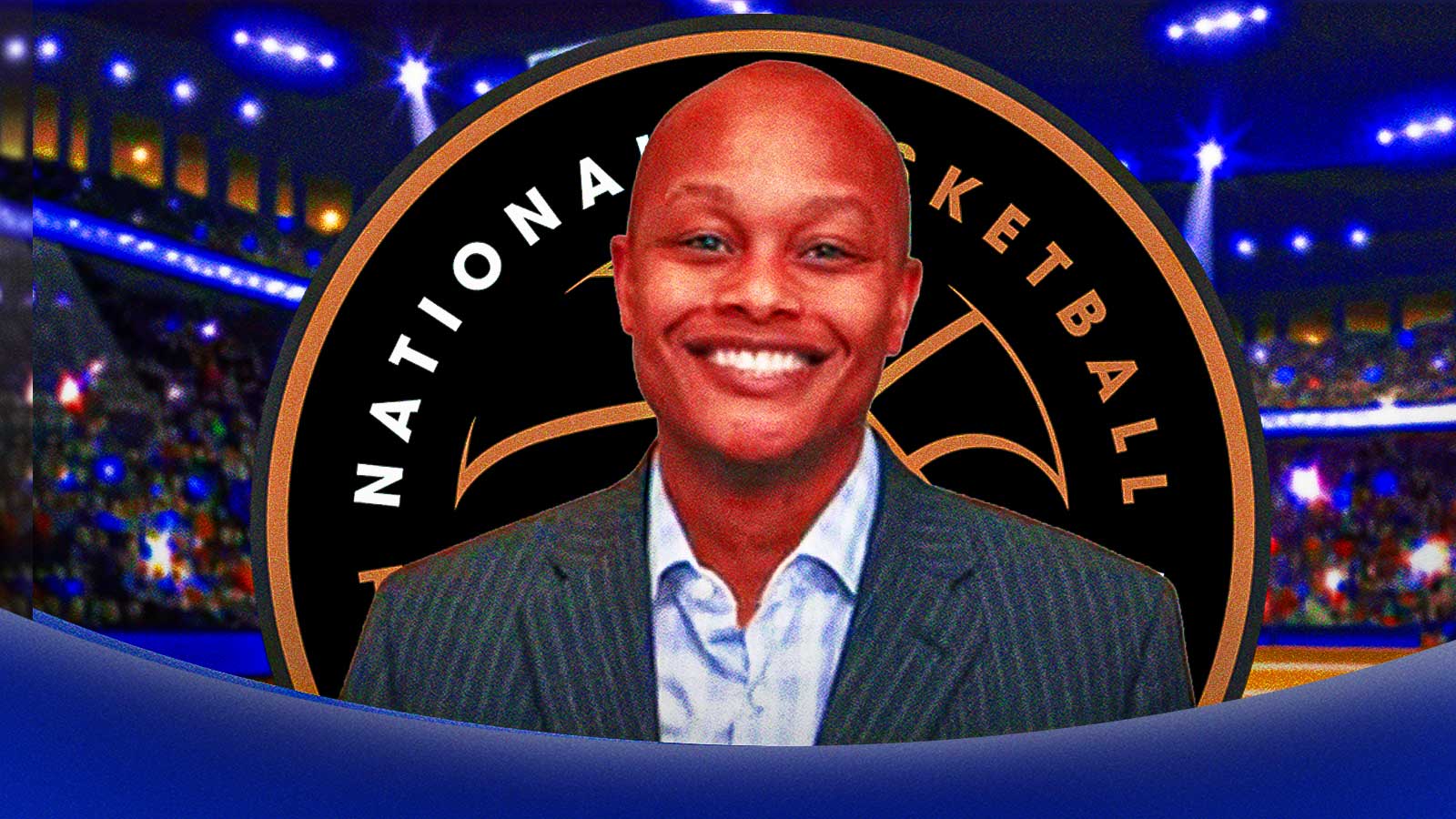The NBA MVP is given to the best-performing player of the regular season. It is a coveted award given to some of the best players to have stepped foot in the NBA.
As the 2023-24 season tips off, The Philadelphia 76ers' Joel Embiid is the reigning MVP. He'll have a tall task to repeat as MVP as Nikola Jokić of the defending NBA champion Denver Nuggets and Giannis Antetokounmpo of the Milwaukee Bucks, who had the NBA's best record a season ago and have added Damian Lillard to the lineup, will both be looking for their third MVP award.
More often than not, the MVP is given to the player who makes his team perform better every time he plays. However, there are times when the unexpected happens. Let’s take a look at the 10 most surprising MVPs in NBA history.
10. Allen Iverson (2000-01)
Stats: 31.1 points, 3.8 rebounds, 4.6 assists, 2.5 steals, 0.3 blocks
Allen Iverson undoubtedly put up MVP-worthy numbers in the 2000-2001 season. In fact, he also led the Sixers to a Finals appearance in the postseason. However, one cannot ignore that Shaquille O’Neal also averaged 28.7 points, 12.7 rebounds, and 3.7 assists per game to lead the Lakers to 56 wins in the regular season and the NBA championship at the expense of Iverson’s Sixers.
9. Bill Russell (1961-62)
Stats: 18.9 points, 23.6 rebounds, 4.5 assists
Bill Russell is ultimately a dominant center, and there was a good reason why he won the 1962 NBA MVP award. However, what made it surprising was that Oscar Robertson registered the first triple-double average in the regular season by any player in league history. Furthermore, he also led the Cincinnati Royals to a decent 43-win regular season.
8. Steve Nash (2005-06)
Stats: 18.8 points, 10.5 assists, 4.2 rebounds, 0.8 steals, 0.2 blocks
Steve Nash ultimately deserved to be MVP of the 2004-2005 season. However, eyebrows were raised when he was crowned the second of his back-to-back MVP seasons. Although Nash led the Suns to a 54-28 record, Kobe Bryant was far more individually great by a mile after posting 35.4 points, 5.3 rebounds, and 4.5 assists per game to power the Lakers to a 45-37 record.
7. Kobe Bryant (2007-08)
Stats: 28.3 points, 6.3 rebounds, 5.4 assists, 1.8 steals, 0.5 blocks
After missing out on the 2006 MVP, Bryant finally won his first and only MVP in 2008. However, Bryant found himself similar to Nash’s position back in 2006. Although he posted decent numbers, some would argue that Chris Paul had better numbers. Paul registered 21.1 points, 11.6 assists, and 4.0 rebounds per game to power the Hornets to 56 wins.
6. Bill Walton (1977-78)
Stats: 18.9 points, 13.2 rebounds, 5.0 assists, 1.0 steals, 2.5 blocks
Bill Walton had a tremendous 1977-78 campaign with the Portland Trail Blazers. But while his numbers were great, it was mind-boggling that Walton won the MVP award despite only suiting up for 58 games during the regular season.
5. Derrick Rose (2010-11)
9 years ago today, Derrick Rose became the youngest MVP in NBA history. He joined MJ as the only Bulls to ever win the award.
Celebrate today 🌹🐐 pic.twitter.com/xPSOU3CyMQ
— Bulls Talk (@NBCSBulls) May 3, 2020
Stats: 25.0 points, 4.1 rebounds, 7.7 assists, 1.0 steals, 0.6 blocks
The youngest player to ever win the NBA MVP award, Rose certainly caught a lot of basketball fans off guard. His MVP season was indeed spectacular, which convinced everyone that he was the future of the Bulls franchise, at least pre-injury. However, many would argue that LeBron James and Dwight Howard might’ve made a stronger case for MVP during that season.
4. Karl Malone (1996-97)
Stats: 27.4 points, 9.9 rebounds, 4.5 assists, 1.4 steals, 0.6 blocks
The Utah Jazz went as far as Karl Malone could take them. Although Malone is often regarded as a great individual player, not a lot of basketball fans would agree that he deserved MVP honors in the 1996-97 season over Michael Jordan. To put things in perspective, Jordan led the Bulls to 69 wins, in contrast to the Jazz's 64. Moreover, Jordan also averaged 29.6 points per game.
3. Kareem Abdul-Jabbar (1975-76)
Stats: 27.7 points, 16.9 rebounds, 5.0 assists, 1.5 steals, 4.1 blocks
Kareem Abdul-Jabbar had a stellar 1975-76 season. While his monster numbers certainly screamed MVP, it was a head scratcher to think the MVP of that season came from a team that posted a losing record, especially during this era. During that season, the Lakers only went 40-42. Many thought that Bob Lanier, Bill Walton, or even Julius Erving was more deserving when taking into account how they led their teams to winning records.
2. Bob Petit (1955-56)
Stats: 25.7 points, 16.2 rebounds, 2.6 assists
Speaking of losing records, it wasn’t only Kareem Abdul-Jabbar who claimed the MVP Award despite coming from a team that posted a losing record. The other player to earn that distinction went to Bob Petit, who was also named as the inaugural MVP. Although Petit’s numbers were MVP-worthy, his production didn’t translate to team success. In fact, the St. Louis Hawks only posted a 33-39 win-loss record during Petit’s MVP season. In fairness, it was just the very first time the league was handing out the award.
1. Wes Unseld (1968-69)
Stats: 13.8 points, 18.2 rebounds, 2.6 assists
Winning Rookie of the Year is already a herculean task. However, Wes Unseld accomplished a rare feat by winning Rookie of the Year while claiming MVP honors. It was certainly surprising to see Unseld take MVP honors right from the get-go. Moreover, he also owns the record for the lowest scoring average by an MVP winner. Nevertheless, Unseld proved to be the turning point for the Bullets franchise.

